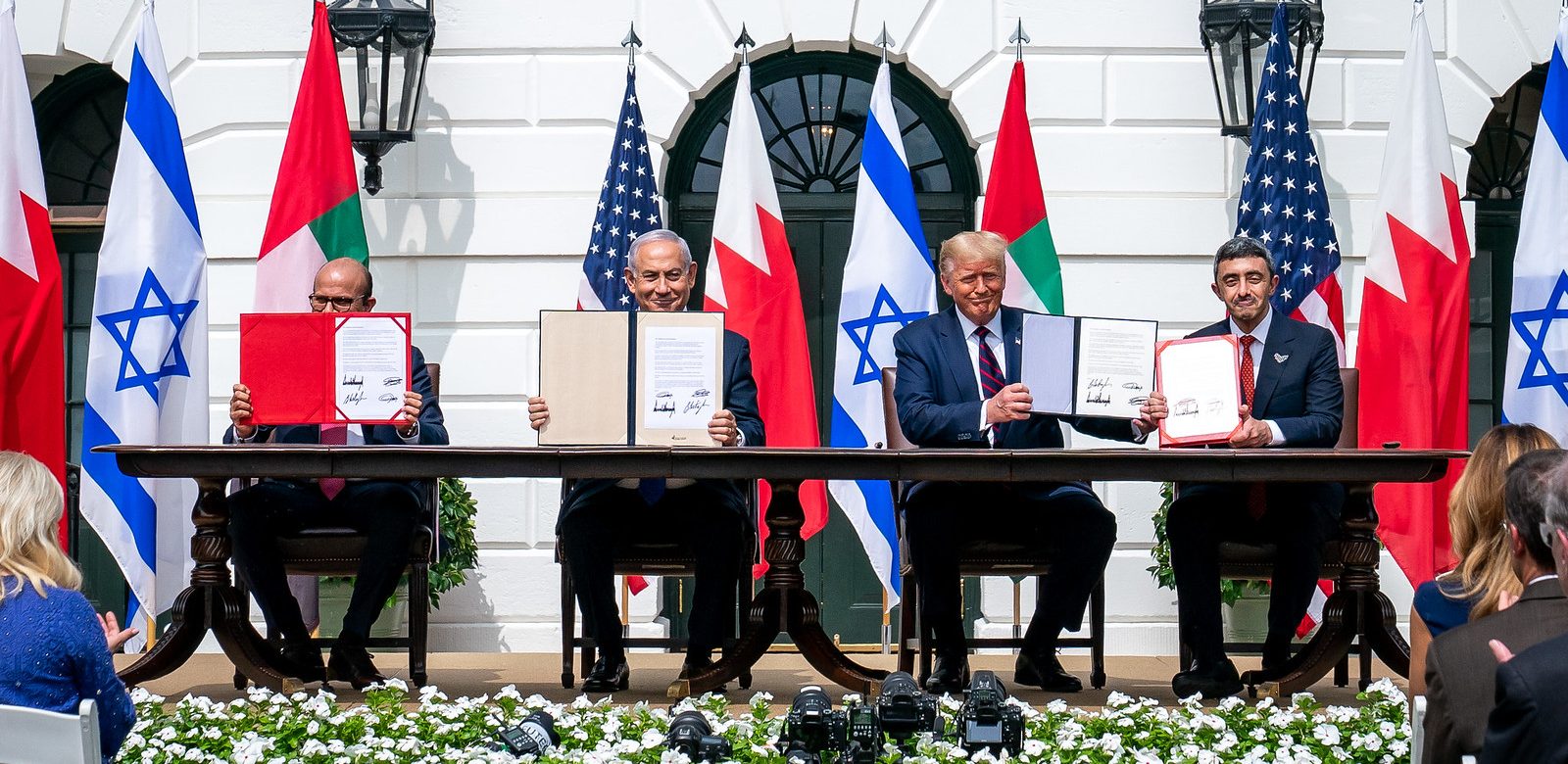The departure, last January, of the tenant of the White House, Donald Trump, caused the "Abraham Accords" to lose the enthusiasm they had enjoyed when they were launched and concluded during the last year of the former President's mandate. American.
The concept of the “Abrahamic Accords” was not used in the Biden Administration’s record, in particular, when State Department spokesman Ned Price had repeatedly stated that his Administration preferred use the term “Standardization Agreements”.
Former US President Trump’s August 13, 2020 announcement of the UAE’s and Israel’s decision to normalize relations surprised the international community.
The signing by the Emirates and Bahrain on September 15, 2020 of the Abrahamic Accords gave the normalization process with Israel some momentum.
Shortly thereafter, Sudan joined the normalization procession by announcing, on October 23, 2020, the normalization of its relations with Israel before Washington announced, on the following December 10, the decision of Rabat and Tel Aviv to restore. their diplomatic relations.
At the time, American and Israeli officials raised the possibility of five to ten Arab and Islamic countries joining the process.
However, with Trump’s departure from the White House in January 2021, comments about the imminent signing by Arab and Islamic countries of agreements to normalize their relations with Israel were no longer in the media headlines.
Shlomo Ganur, Israeli political analyst, pointed out that the “events which have punctuated the Palestinian-Israeli process, and the geopolitical changes in the region and in the world, in particular, the change in the American administration, have resulted in a to a certain extent, to a regression of the normalization process ”.
Ganur believes, however, that “normalized relations have registered, after a year, some progress and some of their assigned goals.”
President Biden had announced his adoption of the two-state solution and his attempt to restart Palestinian-Israeli negotiations after his predecessor rejected this solution.
Moreover, what had been called the “Deal of the Century” drawn up by Donald Trump and fiercely rejected by the Palestinians has completely disappeared from the table.
Variable geometry normalization
Progress in normalizing relations with Israel has seen disparities from one Arab country to another, and ties have been more marked by the seal of trade.
Indeed, recent data made public by the Israeli Ministry of Foreign Affairs shows that during the period spanning the months of July 2020 and 2021, the volume of Israeli exports to the Emirates increased by $ 50.8 million. to $ 613.9 million.
As for the volume of exports to Morocco, it increased from 14.9 million to 20.9 million dollars while Israeli exports to Bahrain increased from 0 to 300 thousand dollars.
Ganur indicates that “relations between Israel and the UAE have amply developed in the space of a year, in particular, in the sectors of economy, finance, tourism, high-tech industry, scientific, medical and cultural exchanges and university cooperation ”.
As for relations with Bahrain, they are still in their early stages, according to Ganur, who adds, however: “There is, however, great potential for cooperation and the development of relations, particularly because of Bahrain’s financial position, as well as exchange of expertise between the two countries ”.
Regarding the lack of progress in relations between Israel and Sudan, the political analyst motivates this stagnation by “internal considerations in Sudan, despite the fact that Israel has honored its commitments to with regard to Khartoum, by interceding with the American administration to remove the name of Sudan from the list of states which sponsor terrorism and by opening the way for Global Investment Funds in Sudan ”.
Regarding relations with Morocco, Ganur said he was convinced that “the results of the last elections in this country could contain the contours of a possible leap in relations between the two countries.”
He added, “There are other considerations that could drive these relationships. These include, among other things, the existence of Jews of Moroccan origin in Israel as well as Jews in Morocco itself alongside the opportunities for joint cooperation between the two countries, in particular, in the fields of agriculture, tourism, investment and irrigation ”.
Trump’s absence undermined normalization
Ganur believes that the change in the US Administration and the defeat of former President Trump in the election did impact the progress of the Abrahamic Accord process.
He added: “Had it not been for the change in the US administration and the events shaking the Arab world, the number of countries that have opted for normalization with Israel would have been higher.”
“However, establishing relations with four important countries in the Gulf region and North Africa is an important starting point for Israel on the path to establishing good relations with these countries despite the stagnation that pervades the country. the Palestinian-Israeli dossier, ”he added.
Israel had tried to present Iran as the danger that threatens Tel Aviv as well as the Arabs, and to consider that the Palestinian-Israeli conflict should not constitute an obstacle on the way to the normalization of its relations with the countries. Arabic and Islamic.
Israeli officials had repeatedly insisted that relations between Israel and Arab and Islamic countries could constitute an entry point for a Palestinian-Israeli agreement, which the Palestinians saw as a “scam.”
Ganur said: “We have a common denominator, namely, the fight against the danger of Iranian extension in the Middle East and Tehran’s attempt to obtain nuclear weapons, which poses a risk to the security of the whole region ”.
The Israeli political analyst concluded his intervention by stating: “This is why I believe the next step would be the establishment of an American-sponsored regional Israeli-Arab security alliance to counter the Iranian danger.”
Source Anadolu Agency








Réagissez à cet article